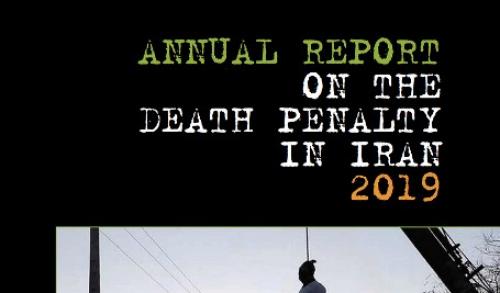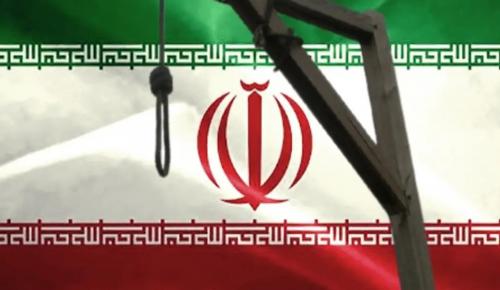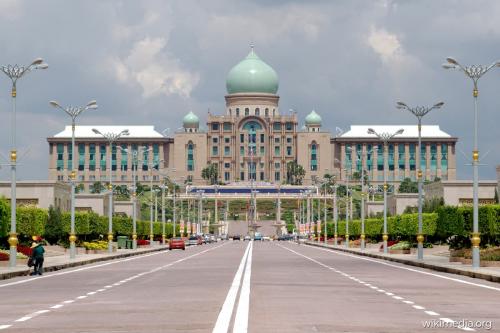15 April 2020 :
The 12th annual Report on the death penalty by Iran Human Rights (IHR) and ECPM (Together Against the Death Penalty) provides an assessment of the abolitionist movement within Iran, including the forgiveness movement and its contribution to limiting the use of the death penalty, the artists and filmmakers attempting to promote abolition, and the authorities’ attempt to promote the death penalty and crackdown on human rights defenders.
In this article, you will read a section of the report regarding Qisas (retribution in-kind) for murder in Iran in 2019.
Qisas refers to retribution in kind. Qisas death sentences have been retained for murder in the new Iranian Islamic Penal Code (IPC). As murder is specifically punished under qisas, the Penal Code of Iran does not specifically state that convicted murderers are subject to the death penalty but rather to qisas which means “retribution in kind” or retaliation. Qisas death sentences are also imposed for juvenile offenders as, according to Sharia, the age of criminal responsibility for girls is 9 and for boys 15 lunar years. In addition, under the IPC, the death penalty is generally subject to discriminatory application based on gender and religion.
In addition to the inequality of citizens before the law, there are many reports on the violation of due process in qisas cases. Use of torture to extract confessions and hasty trials without sufficient time to conduct independent investigation of the evidence are examples of such practice.
Murder charges were the most common charge and qisas executions counted for the most common execution category in 2019.
Some facts about qisas executions in 2019:
225 executions were carried out for qisas (188 in 2018);
65 qisas executions were announced by official sources (28%);
68 qisas executions were carried out in one prison;
4 people executed were juveniles (under 18 years of age) at the time of offence;
15 people among those executed for murder charges were women;
6 people were hanged in public.
QISAS EXECUTIONS SINCE 2010
According to the IHR reports, there have been at least 1,467 qisas executions between 2010 and 2019 with murder charges.
The number of qisas executions, which was relatively low between 2010-2012, increased dramatically in 2013 and since then has remained relatively high. The increase in the number of qisas executions coincides with increasing international criticism of Iran’s drug-related executions. In 2019, at least 225 people were subjected to qisas executions, 19% more than in 2018 and still among the highest in the last 9 years.
THE FORGIVENESS MOVEMENT
According to the Iranian Penal Code, murder is punished by qisas (retribution) where the family of the victim can demand a retribution death sentence. But they can also demand blood money (diya) instead of a death sentence or can simply grant forgiveness.
IHR has collected forgiveness reports since 2015. Altogether, the reports gathered in the past five years show that the families of murder victims who chose forgiveness or blood money for murder convicts outnumber those who chose the death penalty.
For the sake of simplicity, we will use the term forgiveness in the following section, regardless of whether there has been a demand for blood money or not.
As for the execution numbers, not all forgiveness cases are announced by the Iranian media. Based on reports by the Iranian media and, to a lesser extent, through its own network inside Iran, IHR has identified 374 forgiveness cases in 2019, compared to 272 cases in 2018, 221 cases in 2017, 232 cases in 2016 and 262 cases in 2015. Thus, forgiveness trends are increasing. In 2019 the forgiveness cases outnumbered those of implemented qisas executions. The actual numbers for both forgiveness and qisas death sentences are believed to be higher. Reports indicate that the number of forgiveness cases might be several folds higher than the numbers presented in this report. On November 19, 2019, Iranian Judiciary spokesperson, Gholamhossein Esmaili, told reporters that from the beginning of the Iranian calendar year (starting on March 21, 2019) the plaintiff in 346 qisas cases forgave the death-row prisoners, representing a 15% increase in the number of forgiveness cases compared to the year before. Thus, according to the spokesperson, they are not subject to execution anymore.
QISAS AND FORGIVENESS: GEOGRAPHIC DISTRIBUTION
In 2019, IHR recorded forgiveness cases in 29 of the 31 provinces in Iran. In comparison, qisas death sentences were reported from 25 of the provinces. In most provinces the number of forgiveness cases was higher than qisas executions.
The number of implemented qisas executions was higher than forgiveness in 7 provinces. This happened in the provinces of Eastern Azerbaijan (13-6), Khorasan Razavi (15-4), Mazandaran (10-5), Ilam (6-4), Gilan (7-0), South Khorasan (5-0), Ardabil (3-2). In the rest of the provinces the forgiveness numbers were either equal or higher than qisas executions.









